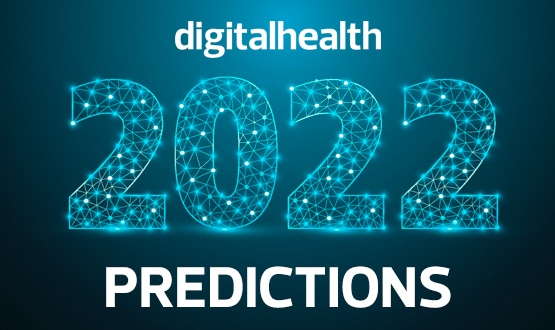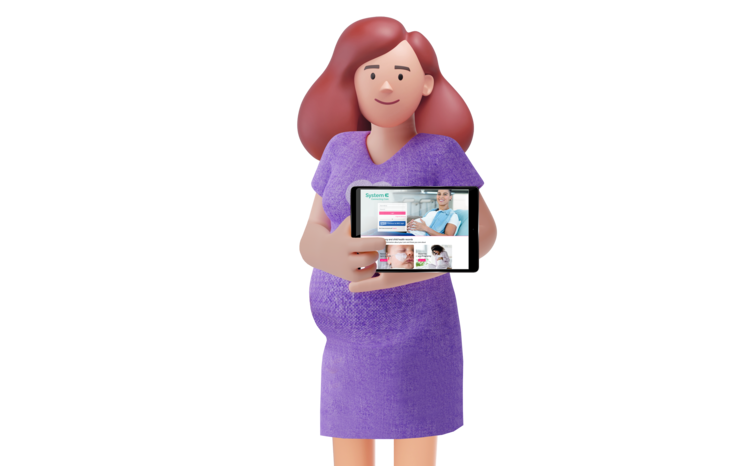2022 predictions: Health tech suppliers have their say
- 4 January 2022

The year 2021 has been hectic but ground-breaking in the world of digital health. We asked health tech suppliers to give their predictions for 2022. Here is what they had to say:
Markus Bolton, joint CEO of System C & director of Graphnet
“The urgent need for real-time data to help manage the Covid-19 crisis and recovery has generated a surge in the use of population health systems and this will accelerate again in 2022.
“In parallel, we are seeing serious demand for cross ICS working and more and more of our applications are being used to enable collaborative working, care planning and information sharing between health and social care providers.
“We expect to see a huge shift towards virtual wards and remote patient monitoring in homes and care homes to support people with long-term conditions as the NHS works towards preventing avoidable hospital admissions and providing better care at home.
“The momentum that has been building around electronic patient records will continue. Trusts are looking for more functionality, interoperability, and customer support. Increasingly sophisticated solutions will hit the market. This includes the official launch of the latest release of our own CareFlow EPR in February 2022. It’s been encouraging to see social care policy starting to receive the attention it requires, and we are looking forward to this focus increasing to support the drive to join up health and social care across whole ICSs.”
Diana Nole, executive vice president and general manager of the healthcare division at Nuance
“Relationships between vendors and hospitals or health systems will become strategic partnerships.
“In days gone by, hospitals, health systems, and other care providers viewed technology vendors as exactly that—companies that supplied the digital tools they were asked to provide. But with the pandemic accelerating the pace of digital change across the healthcare sector to an almost unmanageable level, many organizations are placing greater trust in vendors to help them evolve quickly and intelligently and navigate the future of healthcare.
“Within these strategic partnerships, the role of the vendor changes from IT provider to much more of a trusted advisor and dedicated supporter—providing strategic guidance, white glove service and progress reports against specific shared outcomes, however and whenever they’re needed. Instead of waiting to fulfil specific requests, partners work proactively to help guide care providers‘ digital strategies and find creative solutions to emerging challenges like:
- Combating burnout by delivering superior digital working experiences
- Simplifying workflows to help care providers focus on patient outcomes
- Mastering telehealth and developing new best practices for remote care delivery
- Understanding shifting patient preferences and demands, and how technology can help meet them
“As partnerships become more important across the healthcare ecosystem, organisations will also look to their partners to help them establish and comply with standards that help them stay flexible and easy to collaborate with, without sacrificing security or privacy.”
Jane Rendall, UK managing director at Sectra
“New government funding for diagnostics modernisation will make a big difference to the speed of digitisation in 2022. Digital pathology will be a key focus for many as more trusts and regions look to take advantage of this funding and become fast followers of those that have already laid foundations. The scale and pace of change will be huge – and it is very likely that within the next 12 months nearly every part of the health service will be embracing digital pathology, either deploying supporting technology, or at least advancing planning and procurement stages.
“Those doing this will also look to cloud to enable scalability required and to future proof investments to support potential around integrated diagnostics.
“This will make a significant difference to patient care, helping to improve the turnaround times and accuracy of reporting. Patients will benefit from scarce expertise more easily. And delays in important diagnoses and treatment can be avoided.”
Gary Birks, UK and Ireland managing director of Orion Health
“After working through the Covid-19 pandemic for the best part of two years, I expect the NHS to move into 2022 with a renewed determination to tackle the backlog of elective care and to grasp the potential of integrated care systems.
“That should drive a new wave of digital transformation, so we expect to be busy helping the new customers that chose Orion Health for a shared care record this year to deploy their platforms and helping existing customers to move from ‘viewing’ data to ‘doing’ analysis and care co-ordination. I also expect a wave of interest in remote monitoring and a significant shift from a traditional model to patient engagement through digital front doors.”
Lynette Ousby, UK managing director of Alcidion
“The new year brings new opportunities to shake-up the electronic patient record market to better meet the needs of frontline NHS professionals. This is being demanded in the NHS through initiatives which will help drive forward innovation and change such as the Digital Aspirant Plus programme, and through structural changes such as the formal introduction of Integrated Care Systems. National health data strategy is also driving forward a separation of data and application layers that will give more choice and flexibility, helping to avoid vendor lock-in and to make it easier to adopt clinically responsive technologies.
“As such, clinical users will play an increasing role in sifting out systems that don’t work for them. The market has forced healthcare professionals to work around IT systems for too long. That is starting to change, and 2022 will be the year when health tech vendors must listen and continually respond to real needs of frontline staff in each and every deployment.”
Richard Strong, vice president of international services and operations and managing director (EMEA) of Allscripts
“Technology suppliers must continue to work with clinical colleagues to ensure solutions we provide make their lives easier, freeing them up to spend more time caring for patients. In 2022, we’ll see continued progress in sharing health data within ICSs, which will make a huge difference to clinicians and patients across care settings. A key focus for ICSs will be building inclusive digital strategies to support equitable care delivery for all. In Allscripts’ role as a solution provider, we’re committed to supporting regional systems to integrate and helping leaders create the right culture for technology to make a difference.
“In 2022, we’ll also see technology that empowers patients to take more control over their health as a necessary, not a nice to have. As technologies mature, integrating them with core clinical systems such as EPRs will improve the flow of information from patient to clinician, helping to tackle the elective backlog with the improved efficiencies.”
Tom Whicher, chief executive of DrDoctor
“2022 will see the increasing need to look at digital patient care to break the backlog. The sector will accelerate the use digital first models to enable patients to be updated on where there are on a waiting list or when they are likely to be seen – much in the same way they are currently updated on their Amazon delivery.
“As ICSs evolve there will be a need to coordinate care across boundaries so there will be a huge appetite for giving people the tools to self-manage their condition. Whether that’s having a video consolation online, booking or rescheduling an appointment, being seen based on their need or being able to send symptoms to a clinician online.
“The use (and patient acceptance) of AI will grow to bridge health inequalities, identify patients who are most at risk and enable hyper-personalised healthcare delivery for the NHS.”
Juliet Bauer, UK managing director of Livi
“The use of technology will broaden in 2022 to offer more services to patients and NHS practices. Mental health is one area that will benefit from quicker diagnosis and better access to treatment. The NHS has committed to improving access to mental health services but with the Office of National Statistics (ONS) finding that one in five people self-reported depression compared to one in ten prior to the pandemic, digital healthcare will play a vital role in delivering accessible treatment.
“Our internet cognitive behavioural therapy (ICBT) programme will launch in the UK and be scaled-up across Europe in 2022. Our ICBT service features self-help assessments, modules on aspects such as depression, anxiety and stress, and video consultations with a psychologist, supporting HCPs to see twice as many patients and deliver equal access for mental health treatment.
“Livi saw strong growth in 2021, appetite for digital healthcare services in general increased and will continue to grow in 2022. As the first digital healthcare provider to be rated ‘Outstanding’ by the Care Quality Commission, we believe technology has a major role to play in enhancing population health outcomes and we will be rolling out a number of new, innovative services in the coming year.”
Matt Cox, UK and Ireland managing director of Better
“As we look to 2022, the NHS continues to face significant pressure due to COVID-19 and the effects of the backlogs. The pandemic, while immensely challenging, proved that the NHS can adapt and digital innovation has been central in this. Digitalisation and opening up the use of data has enabled the NHS to be more resilient and innovate quicker. I believe that in 2022 we will see platforms to transform healthcare take a leap forward in the UK.
“I think we will see the scaling of innovation at pace, with far more significant deployments tackling problems in different ways. I also think there is the potential for greater inter-industry collaboration to drive just as much innovation as the system themselves, however we need the NHS to set the right conditions to facilitate this.”
Alan Lowe, chief executive of Visionable
“Pre-pandemic pain points in healthcare have now been highlighted for all the world to see, and it’s time to futureproof healthcare and ensure it is provided in an accessible and equitable way for all.
“COVID-19 has shown why it’s important for healthcare services and tech companies to come together and find real solutions to tackle the great challenges that lie ahead. Whilst the NHS is under more pressure than ever, suppliers must support the systems already in place. Technology companies need to adapt to help the NHS adapt.
“Big changes are afoot in healthcare, particularly in the NHS, and I cannot wait to see how a more combined and targeted effort will implement effective change in digital healthcare.”
Lloyd Price, Chief Executive Officer of Hive Health (ex Zesty co-founder sold to Induction Healthcare PLC)
“The last 18 months have seen waiting and frustration build up on both sides of the healthcare coin. As healthcare professionals focus on addressing the ever-increasing backlogs across the system, there will be a new wave of digital health start-ups focused on a new emerging problem and customer – the “impatient.”
“As ICSs gain statutory footing, the responsibility they hold across regions will increase, their responsibility over data protection and cybersecurity notwithstanding. Cybersecurity risks are bigger now than ever, and it could take one incident to derail the hard work, planning and patience of staff. 2022 will require us to invest in and be responsible for data and security, ensuring structures protecting them are watertight.
“Finally, I expect real attention to be paid to tackling staff burnout that is only likely to increase. Local and central leaders must plan for eventualities, such as huge staff absences, in turn deploying solutions such as staff banks that replace locums to alleviate pressures.”




